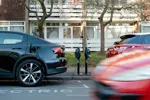Paul Willis, UK managing director of Volkswagen Group, has said the “pendulum may have swung too far” towards incentivising diesel through company car taxation.
Willis made his comments at an Environment Audit Committee to further discuss the impact of Volkswagen Group’s “defeat device” software fitted to certain group models to cheat emissions tests.
Willis appeared before the committee with Mike Hawes, Society of Motor Manufacturers and Traders (SMMT) chief executive.
Willis said: “The Government’s role in this is extremely important. If you look at what has happened with diesel since 2000, it’s really quite extraordinary.
“The mix of the diesel market in the UK was 14% and now it’s 53%. There are many different reasons for that, including improvements in technology. But if you look at the tax regime, we were all with government with the push toward improving the CO2 footprint and the current tax regime encourages that.
“When you look at the detail of who buys petrol and who buys diesel cars, retail customers generally buy petrol and fleet customers that do more mileage buy diesel. The tax regime was built in order to get that result.
“I think it’s time that we look at the swing of the pendulum and say, actually have we let that go too far?”
Willis said he was happy to sit down with Government, along with the SMMT, to discuss the role VW Group has to play in company car taxation changes.
He also said he would support stronger NOx regulation across all industries, automotive included. While Hawes wouldn’t go as far, saying current regulation and targets were already getting “ever tougher”.
Hawes said: “The regulation we already have in place will deliver significant improvements in air quality, specifically on NOx.
“It’s worth bearing in mind that the regulation that governs the automotive industry has got ever tighter over the years.”
Hawes said the industry is on a path to introducing real world emissions testing from September 2017.
Willis also told the committee it was premature to have a discussion with the fleet industry over compensation for a theoretical scenario where residual values on VW Group models are negatively affected.
He said: “We will have sit down discussions with fleet owners and leasing companies, if discussions are required.”
It is the second time Willis has appeared in Parliament to face questioning over the fitment of “defeat devices” to some VW Group vehicles. He spoke at a Transport Select Committee early last week. At both meetings, Willis made an opening statement apologising for the company’s involvement with the scandal.
Volkswagen has launched an independent investigation with legal firm Jones Day to find out what happened within the business to allow “defeat devices” to be fitted to vehicles. The UK has also started its own testing programme of affected vehicles.




















mark - 19/10/2015 11:05
A interesting position to present if it wasn't for the fact that his company had just been caught building in 'defeat' software into their diesels and they have some good efficient petrol models available!